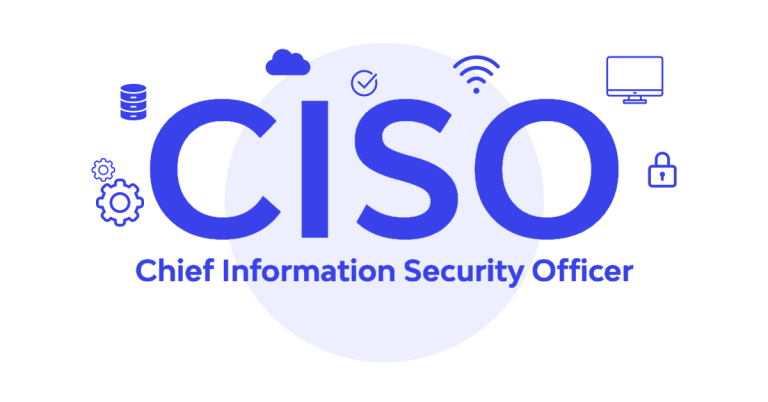The information security of an organization is overseen by the Chief Information Security Officer (CISO). Typically, the CISO is in charge of establishing and implementing the company’s information security program, which includes policies, processes, and technology to secure the company’s data against unauthorized access, use, disclosure, interruption, alteration, or destruction.

The CISO often reports to the CEO or CIO. The CISO’s responsibilities may differ based on the size and structure of the organization. However, some frequent tasks of a CISO include
- Developing and implementing an information security program for the organization Identifying and analyzing risks, establishing and implementing security controls, and monitoring and responding to security events are all part of the job.
- Informing the board of directors and senior management on security risks and threats CISOs must be able to effectively articulate the business implications of security threats as well as the necessity for security investment initiatives.
- Creating and sustaining a robust security culture This entails establishing an atmosphere in which workers are aware of security concerns and have the authority to report them.
- Collaboration with other business groups to incorporate security into operations This entails knowing other departments’ business needs and collaborating with them to build security solutions that meet those demands.
- Keeping current on the newest security dangers and developments Because the threat environment is continuously changing, CISOs must be able to stay up-to-date on the newest threats and trends to defend their organizations.
The CISO function is complicated and difficult, but it is also crucial. In order to defend their companies from cyberattacks, CISOs are essential. The CISO function is crucial now more than ever because of how sophisticated and frequent cyberattacks are becoming.
CISOs may additionally oversee the following duties in addition to those mentioned below:
- Overseeing the security of the organization’s information and frameworks: This includes securing information from unauthorized access, utilization, divulgence, disturbance, alteration, or devastation.
- Developing and implementing security approaches and strategies: These arrangements and strategies ought to be outlined to protect the organization from an assortment of security dangers, including information breaches, malware assaults, and insider dangers.
- Conducting security reviews and surveys: These reviews and audits ought to be utilized to recognize and address security shortcomings within the organization’s frameworks and forms.
- Responding to security episodes: This incorporates exploring occurrences, containing the harm, and recovering from the occurrence.
The CISO position is challenging, but it’s also rewarding. CISOs have the chance to significantly impact their organization’s security. CISOs may aid in defending their organizations against cyberattacks and preserving the security of their data and systems by collaborating with other business units and being informed on the most recent security risks.

Some of the skills and qualifications commonly necessary for a CISO post are as follows:
- Technical abilities: CISOs should be well-versed in information security principles and techniques.
- Business expertise: CISOs must understand and express the commercial implications of security issues.
- Leadership skills: CISOs must be capable of leading and motivating a team of security specialists.
- Communication abilities: CISOs must be able to successfully communicate with both technical and non-technical audiences.
- Problem-solving abilities: CISOs must be able to detect and resolve security issues.
- Decision-making abilities: CISOs must be able to make smart security judgments when under pressure.
Overall, your major purpose as a CISO is to safeguard the organization’s digital assets, preserve information confidentiality, integrity, and availability, and guarantee the resilience of the organization’s security posture in an ever-changing threat landscape.
Reference:
What is a CISO (chief information security officer)? Definition from SearchSecurity (techtarget.com)
What is a CISO? Responsibilities and requirements for this vital role | CSO Online
For further clarifications or support, please write to contact@paradigmitcyber.com

